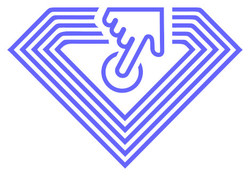
Close

Fortunesea.org does not tolerate money laundering and supports the fight against money launderers.
Fortunesea.org has policies in place to deter people from laundering money.
What is Money Laundering?
Money Laundering is not just the attempt to disguise money derived from the sale of drugs. Rather money laundering includes any transaction or series of transactions that seek to conceal or disguise the nature or source of proceeds derived from illegal activities, including drug trafficking, terrorism, organized crime, fraud and many other crimes. Money laundering occurs when any of those funds from illegal/criminal activity are moved through the financial system. It is moved in such a way as to make it appear that the funds have come from legitimate sources.
There is no specific method of Money laundering; however, usually, three stages are commonly followed during which there may be numerous transactions made by the launderers that could alert a financial institution to criminal activity:
Firstly, Placement - the physical disposal of cash proceeds derived from illegal activity; in other words, cash or cash equivalents are placed into the financial system.
Secondly, Layering - separating illegal proceeds from their source by creating complex layers of financial transactions designed to disguise the audit trail and provide anonymity; in other words, money is transferred or moved to other accounts (e.g. futures accounts) through a series of financial transactions designed to obscure the origin of the money (e.g. executing trades with little or no financial risk or transferring account balances to other accounts).
Thirdly and lastly, Integration - the provision of apparent legitimacy to criminally derived wealth; in other words, the funds are re-introduced into the economy so that the funds appear to have come from legitimate sources (e.g. closing a futures account and transferring the funds to a bank account).
Trading accounts are one vehicle that can be used to launder illicit funds or to hide the true owner of the funds. In particular, a trading account can be used to execute financial transactions that help obscure the origins of the funds. Crypfuture.com directs fund withdrawals back to the source of remittance as a preventative measure.
International Anti-money Laundering requires financial services institutions to be aware of potential money laundering abuses that could occur in a customer account, and implement a stringent compliance program to deter, detect and report potential suspicious activity.
Defining Suspicious Activity
There is, as of yet, no clear regulatory guidance as to what constitutes "suspicious activity." A determination of whether any transaction or series of transactions is suspicious will necessarily depend on the customer and the particular transaction(s), compared with the customer's normal business activity. Unusual or questionable transactions sometimes referred to as "red flags," may include those that appear to lack a reasonable economic basis or recognizable strategy based upon what the firm knows about the customer. Suspicious activity can occur either at the outset of the client relationship or long after the relationship has been established.
Knowing Your Clients ("KYC")
The Company has separate account opening procedures that are followed when opening new accounts. These procedures must be reviewed in conjunction with the Screening of Prospective Clients and AntiMoney Laundering Measures section of these Procedures. However, in addition to those new account opening procedures, each Associated person must be familiar with his or her client's identity. Below are factors to be considered in carrying out the "Know Your Client" duty. The Compliance Officer will also be responsible for reviewing all new accounts and conducting an annual review of all accounts to consider the following factors:
Whether the client is an individual, an intermediary, public, private or domestic corporation, a financial or non-financial institution, or regulated person or entity;
Whether the client has been an existing client for a significant period of time;
How the client became a client of the Company (e.g., the client is personally known by the Associated person, referred by a long-time well-known existing client, etc.);
Whether the client's home country is a member of the Financial Action Task Force ("FATF").
"Red Flags" - Indicators at the Account Opening Stage:
Although by no means exhaustive, the following is a list of potential indicators of suspicious activity, which, if unexplained, may evidence money laundering activity:
A customer exhibits unusual concern regarding the firm's compliance with government reporting requirements, particularly for his or her identity, type of business and assets, or is reluctant or refuses to reveal any information concerning business activities, or furnishes unusual or suspect information or business documents;
A customer wishes to engage in transactions that lack business sense, apparent investment strategy, or are inconsistent with the customer's stated business/strategy;
A customer (or a person publicly associated with the customer) has a questionable background or is the subject of news reports indicating possible criminal, civil or regulatory violations;
A customer appears to be acting as the agent for another entity, but declines, evades or is reluctant, without legitimate commercial reasons, to provide any information in response to questions about that entity;
A customer has difficulty describing the nature of his or her business or lacks general knowledge of his or her industry;
The information provided by the customer that identifies a legitimate source for funds is false, misleading, or substantially incorrect; and
Upon request, the customer refuses to identify or fails to indicate any legitimate source for his or her funds and other assets.
Screening of Clients, Anti-Money Laundering Measures
The Company has in place procedures to prevent and detect money laundering. As part of those procedures, the Company also has in place detailed procedures on screening new clients. Such procedures are expanded upon in the Anti-Money Laundering context. The Compliance Officer is responsible for approving all new accounts to ensure that no account is subject to restricting or blocking before opening.
All new accounts must be reviewed and approved by the Compliance Officer before they are opened. It is imperative that all required information be obtained and that all account holders and principal owners of accounts are identified and compared to lists of terrorists and suspected terrorists published by the Office of Foreign Assets Control ("OFAC") and other lists published by the Financial Action Task Force ("FATF") against Money Laundering. The Compliance Officer is responsible for ensuring the Company's compliance with its anti-money laundering procedures which are outlined in a separate section entitled Anti-Money Laundering Compliance Program.
Documentary Verification
Fortunesea.org will obtain the following information from all prospective customers:
For natural persons:
A copy of an unexpired government-issued identification evidencing nationality or residence and bearing a photograph (e.g., driver's license, passport, alien registration card, or similar identification).
A bank card (on the front side of the card there have to be seen the first 6 digits, the last 4, the expiration date and the name of the owner. On the back you have to close the CVV code)
Valid recent official utility bill with the name and address of the user (water, gas, electricity, phone, Bank Statement etc.) issued within the last three months.
For non-natural persons / Corporate or Institutional:
Memorandum and Articles of Association (certified original)
Certificate of Registered address (certified original)
Directors and shareholders Certificate (certified original)
Certificate of Incorporation (certified original)
Account opening form completed, signed and initialled on every page Minutes completed, signed and initialled on every page
Financial Position of the Company's Audited Financial Statements for last 2 years
Full documents: Passport/ID, Copy of Credit Card and Proof of Address (i.e. utility bill) of the empowered person
Passport/ID, Proof of Address (i.e. utility bill) of all shareholders of the Company
Fortunesea.org will close an account in cases where:
A potential client's identity cannot be verified.
There are any doubts about the legitimacy of the client's source or use of the funds.
The client refuses to provide the mandatory information.
The information provided appears false or suspicious.
The information is inconsistent and cannot be explained after additional inquiries.
Deposits and Withdrawals
Withdrawal orders: The provision of documentation or any other type of Client authentication as may be required from time to time by Anti Money Laundering (AML) regulations, Credit Card companies and Crypfuture.com, is a prerequisite, before the execution of a withdrawal order.
Credit card deposits may be, according to credit card companies' regulations, returned to the same credit card when a withdrawal is performed. A withdrawal to a bank account where initial deposits have been performed by credit cards will be executed back to the credit card or the bank account at the company's discretion. Withdrawals to a bank account may take a longer time period, due to additional security procedures and documentation from the Client.
Credit Card Deposits Variance: When choosing an account base currency other than USD, your credit card may be debited sums which due to exchange rates and credit card companies’ fees, may slightly vary from the initial sum that has been deposited by you in the account base currency. You hereby accept that such variations may occur and you hereby affirm that you shall not seek to object or charge this back. Note that when Using USD as account base currency this phenomenon will be avoided.
Wire Transfers: When depositing by a Bank Transfer, as required by Anti Money Laundering regulations, you are required to use only one bank account, which is in your country of residence and your name. An authentic SWIFT confirmation or Transfer Confirmation, showing the origin of the funds, must be sent to the Worldwide Crypfuture.com legal name of the Crypfuture.com brand. Failure to submit such SWIFT/Confirmation may result in the return of the deposited amount, hence preventing the deposit of such pending amounts to your Crypfuture.com account. Any withdrawal of funds, from your Crypfuture.com account to a bank account, can only be refunded to the same bank account that the funds were originally received from.
Alternative payment methods (e-wallets; money transfer services; internet payment vendors; etc.): when depositing funds using a facility other than Credit Cards and/or Banks, you agree to, and acknowledge being bound by, the regulations and rules of such service, including, but not limited to, fees and other restrictions. Crypfuture.com, at its sole discretion, may execute withdrawals to a facility other than the facility used for the original deposit, following Company and Anti Money Laundering regulations.
The Company does not accept cash deposits.
These guidelines have been implemented to protect Crypfuture.com and its clients.
`
 Calamari Network(KMA)$0.0023166.98%
Calamari Network(KMA)$0.0023166.98% USDEX(USDEX)$1.080.18%
USDEX(USDEX)$1.080.18% Lido Staked Ether(STETH)$1,806.105.10%
Lido Staked Ether(STETH)$1,806.105.10% Solana(SOL)$21.157.08%
Solana(SOL)$21.157.08% Binance USD(BUSD)$1.000.01%
Binance USD(BUSD)$1.000.01% Shiba Inu(SHIB)$0.0000114.04%
Shiba Inu(SHIB)$0.0000114.04% Avalanche(AVAX)$17.264.84%
Avalanche(AVAX)$17.264.84% Uniswap(UNI)$5.995.14%
Uniswap(UNI)$5.995.14% Toncoin(TON)$2.123.49%
Toncoin(TON)$2.123.49% OKB(OKB)$43.261.11%
OKB(OKB)$43.261.11% Aerarium Fi(AERA)$7.11-13.04%
Aerarium Fi(AERA)$7.11-13.04% Aptos(APT)$11.666.87%
Aptos(APT)$11.666.87% Lido DAO(LDO)$2.4318.12%
Lido DAO(LDO)$2.4318.12% Hedera(HBAR)$0.0610223.57%
Hedera(HBAR)$0.0610223.57% Quant(QNT)$121.842.24%
Quant(QNT)$121.842.24% Cronos(CRO)$0.0684353.07%
Cronos(CRO)$0.0684353.07% NEAR Protocol(NEAR)$1.946.05%
NEAR Protocol(NEAR)$1.946.05% Arbitrum(ARB)$1.2510.36%
Arbitrum(ARB)$1.2510.36% ApeCoin(APE)$4.172.49%
ApeCoin(APE)$4.172.49% Internet Computer(ICP)$5.026.25%
Internet Computer(ICP)$5.026.25% Stacks(STX)$1.0218.29%
Stacks(STX)$1.0218.29% The Graph(GRT)$0.14743812.86%
The Graph(GRT)$0.14743812.86% Humans.ai(HEART)$0.027042-8.43%
Humans.ai(HEART)$0.027042-8.43% Fantom(FTM)$0.46085314.95%
Fantom(FTM)$0.46085314.95% The Sandbox(SAND)$0.647.40%
The Sandbox(SAND)$0.647.40% MultiversX(EGLD)$43.105.41%
MultiversX(EGLD)$43.105.41% ImmutableX(IMX)$1.1612.02%
ImmutableX(IMX)$1.1612.02% Aave(AAVE)$73.025.33%
Aave(AAVE)$73.025.33% Flow(FLOW)$0.988.19%
Flow(FLOW)$0.988.19% Axie Infinity(AXS)$8.526.34%
Axie Infinity(AXS)$8.526.34% Rocket Pool(RPL)$46.1913.60%
Rocket Pool(RPL)$46.1913.60% Conflux(CFX)$0.38179221.71%
Conflux(CFX)$0.38179221.71% Synthetix Network(SNX)$2.496.48%
Synthetix Network(SNX)$2.496.48% BitDAO(BIT)$0.533.21%
BitDAO(BIT)$0.533.21% WhiteBIT Token(WBT)$5.245.04%
WhiteBIT Token(WBT)$5.245.04% Terra Luna Classic(LUNC)$0.0001254.22%
Terra Luna Classic(LUNC)$0.0001254.22% Curve DAO(CRV)$0.957.46%
Curve DAO(CRV)$0.957.46% Gate(GT)$5.155.97%
Gate(GT)$5.155.97% Klaytn(KLAY)$0.2350345.79%
Klaytn(KLAY)$0.2350345.79% USDD(USDD)$0.990.03%
USDD(USDD)$0.990.03% Optimism(OP)$2.2710.50%
Optimism(OP)$2.2710.50% Mina Protocol(MINA)$0.778.60%
Mina Protocol(MINA)$0.778.60% PancakeSwap(CAKE)$3.693.36%
PancakeSwap(CAKE)$3.693.36% GMX(GMX)$76.766.23%
GMX(GMX)$76.766.23% Sapphire(SAPP)$0.7144.75%
Sapphire(SAPP)$0.7144.75% Chiliz(CHZ)$0.1186013.74%
Chiliz(CHZ)$0.1186013.74% CloutContracts(CCS)$52.671,000.00%
CloutContracts(CCS)$52.671,000.00% eCash(XEC)$0.0000314.96%
eCash(XEC)$0.0000314.96% BitTorrent(BTT)$0.0000011.63%
BitTorrent(BTT)$0.0000011.63% Bitget Token(BGB)$0.4054266.28%
Bitget Token(BGB)$0.4054266.28% cETH(CETH)$36.405.37%
cETH(CETH)$36.405.37% Mask Network(MASK)$6.9422.95%
Mask Network(MASK)$6.9422.95% Edgecoin(EDGT)$1.00-0.14%
Edgecoin(EDGT)$1.00-0.14% PAX Gold(PAXG)$1,984.760.20%
PAX Gold(PAXG)$1,984.760.20% Tokenize Xchange(TKX)$6.313.59%
Tokenize Xchange(TKX)$6.313.59% Tether Gold(XAUT)$1,969.98-0.12%
Tether Gold(XAUT)$1,969.98-0.12% Trust Wallet(TWT)$1.164.14%
Trust Wallet(TWT)$1.164.14% BinaryX(BNX)$181.172.97%
BinaryX(BNX)$181.172.97%
We are always waiting to provide necessary answers, and also willing to assist you through your journey as a Fortuner.